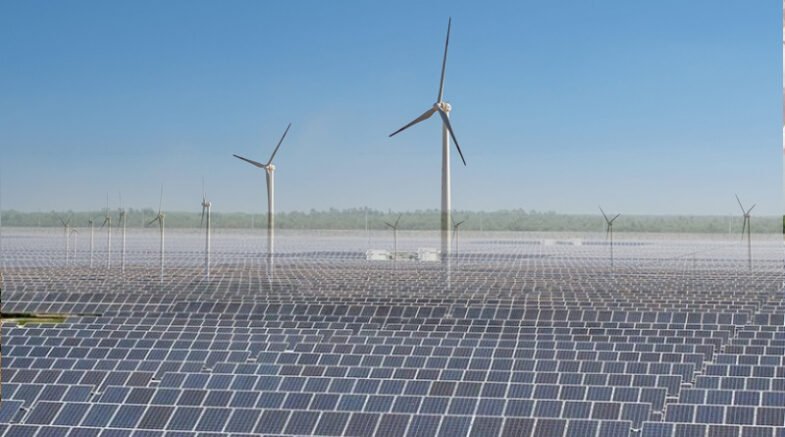Senator Rukhsana Zuberi stressed the importance of conducting energy audits to identify wasteful practices and increase energy efficiency.

Experts expressed the opinion at a conference on Wednesday that because China has become a global leader in renewable energy and environmentally friendly development, investors of Pakistan may find new opportunities in this area thanks to the China’s model policy.
The Pakistan China Institute (PCI) and Sustainable Development Policy Institute (SDPI) jointly hosted the conference, which had the theme “The need to switch towards a greener future: Lessons from China.”
Speaking at the conference, the head of the defence committee of the Pakistani Senate and the president of the PCI said that “green is a defining element of China’s development agenda” and that President Xi Jinping had promised that China would become a global leader in green development while pledging carbon neutrality on the occasion of COP in 2015.
He also noted that the transition to green technology has so far resulted in the creation of an additional 54 million jobs, demonstrating the enormous and multifaceted potential of green development. He believed that China had officially caught up to or surpassed the United States in terms of green technologies, AI, STEM, etc.
Senator Rukhsana Zuberi stressed the importance of conducting energy audits to identify wasteful practices and increase energy efficiency. After the first energy audit of the Pakistan Energy Council, a 35% reduction in energy consumption was achieved. She also advocated for advocacy and engaging with common people to increase energy efficiency at the household level by highlighting the financial cost of making small consumption changes.
China announced its policy for carbon neutrality in 2016 and has been committed to enacting the policy guidelines, which is the reason China has become a global leader in renewable energy and emission reduction. Dr. Zhao Baige, Vice Chair of the 12th NPC Foreign Affairs Committee and Chair of the Advisory Committee of RDI, recalled this.
She emphasised that by supporting renewable energy, Pakistan has enormous potential for green development. According to her, with dedication, cooperation, and the right policies, much can be accomplished in Pakistan’s green development projects, and Chinese businesses are interested in investing there.
According to Dr. Abid Q. Suleri, Executive Director of SDPI, China was able to reduce SMOG and particulate matter air pollution by 60% in Beijing over a short period of time. He insisted that another initiative, China’s Great Green Wall in 2013–14, successfully managed desertification.
He continued, “CPEC is not just about trade or energy; food security and the use of nature for greening are evident in various CPEC initiatives, including China’s assistance to Pakistan in the form of genetically modified seeds and rice.”
Christoph Nedopil and Farid Ahmed discussed the increasing willingness among Chinese companies to invest abroad in hi-tech sectors. Nedopil said that until 2019, China followed the host country’s environmental regulations, but that has changed significantly. He called for preventing brown environmental risks at the heart and center of BRI projects.
Farid Ahmed said that forex crunch, lack of indigenous production of RE machinery and import restrictions are hindering the uptake of projects.
The financing space is currently dominated by 8–10 banks offering long-term financing for RE projects, but only one bank is accredited with the Green Climate Fund, and two more banks are in the process of accreditation, providing hope for increased concessionary financial instruments and international financing.
Hamza Orakzai, Director Strategic Planning and Regulatory Affairs, Special Technology Zones Authority (STZA), announced that new laws for investors in SEZs have been introduced to simplify the legal and regulatory environment.
Mujtaba Khan, CEO of Reon Energy, said that demand for solar technology is increasing annually, but government regulations discourage investors. PM to personally supervise the implementation of austerity measures to save Rs 200 billion annually.
Mustafa Hyder Sayed, Executive Director, Pakistan China Institute, stressed the importance of establishing Special Economic Zone (SEZs) at strategic locations to explore their true potential. Shenzhen emerged as the most successful model due to its strategic location in proximity to other business clusters. Renewable energy can be expanded in Pakistan if it is profitable and a return on investment is guaranteed.
